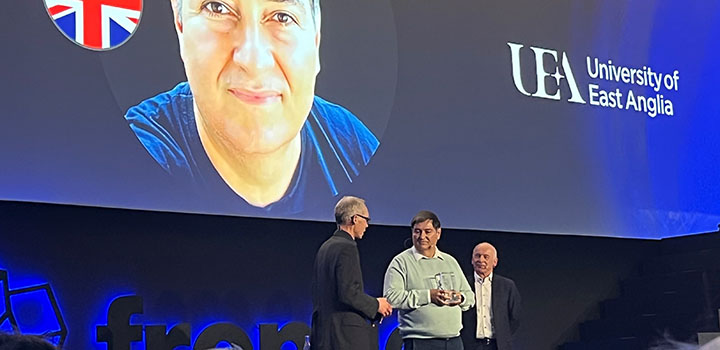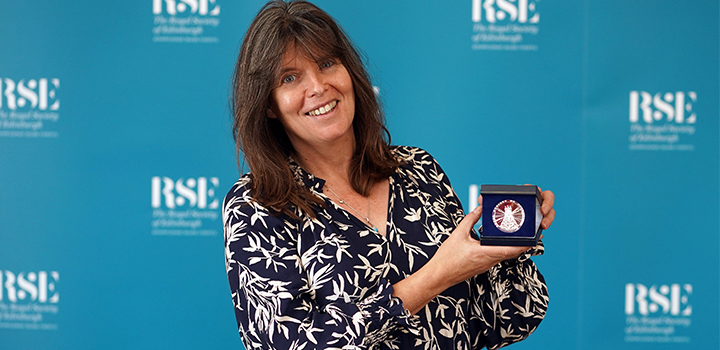Amazonian project named as top solution to planet health
By: Communications

Prof Carlos Peres, Professor of Conservation Ecology at the University of East Anglia (UEA) has been awarded one million Swiss Francs (around £900,000) as one of four International Champions in the inaugural Frontiers Planet Prize.
As part of the award from The Frontiers Research Foundation, an international not-for-profit organisation, Prof Peres has also been named UK National Champion for the research he led on communities in protected areas in rural Amazonia.
The Frontiers Planet Prize was launched with the ambition to accelerate scientific solutions for healthy lives on a healthy planet. It has identified nine major problems which threaten the health of the planet.
These range from ozone depletion and climate change to chemical pollution and freshwater consumption. Prof Peres’ article, ‘Sustainable-use protected areas catalyze enhanced livelihoods in rural Amazonia’, was chosen by a jury of 100 leading sustainability scientists, as a breakthrough with potential to help stabilise the planet’s ecosystem.
The prize fund will be used to support Prof Peres’ ongoing research, which has so far collected data from more than 100 rural communities located across 2,000km of the Juruá River, a major tributary of the Amazon. Researchers used this data to explore how the livelihoods of residents in sustainable-use protected areas - a joint initiative sponsored by government agencies to expand protection of the Amazon rainforest in Brazil - compare with those in unprotected areas.
Prof Peres and his team discovered that communities within the protected areas had better healthcare, basic sanitation and critical infrastructure.
In comparison, 67 per cent of communities outside the protected areas were not empowered in the same way, with most practicing “subsistence livelihoods at the periphery of the market economy”.
Prof Peres said: "This is wonderful recognition for workable and scalable nature-based solutions to the most pressing environmental and societal problems of our times in the most biodiverse but low-governance parts of the world, and the value of co-managing natural resources with local traditional communities for their own benefit."
The project brought together researchers from UEA and Anglia Ruskin University in the UK, the Norwegian University of Life Sciences, and three universities in Brazil: the Instituto Juruá, Manaus, Universidade Federal do Rio Grande do Norte, Natal, and Universidade Federal de Alagoas, Maceió.
Prof Peres will work with Instituto Juruá, a nonprofit conservation non-governmental organisation (NGO) he co-founded in Brazil, to continue to implement integrated conservation-development programs across the Juruá and other river basins in the Amazon.
Related Articles

Prof Jenni Barclay honoured by the Royal Society of Edinburgh
Prof Jenni Barclay, Professor of Volcanology, has been honoured for her contributions to the emerging field of social volcanology by the Royal Society of Edinburgh with the James Hutton Medal.
Read more
Protect delicate polar ecosystems by mapping biodiversity
Polar regions contain vast, undiscovered biodiversity but are both the most-threatened and least-understood areas of the world.
Read more
Six UEA professors named in Highly Cited Researchers 2023 list
Six UEA professors have been named in the annual Highly Cited Researchers list for 2023, which celebrates some of the most influential researchers in the world today.
Read more